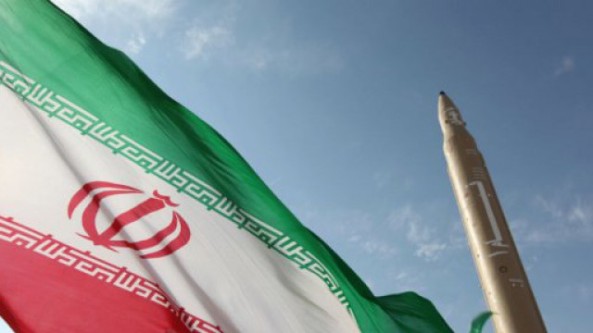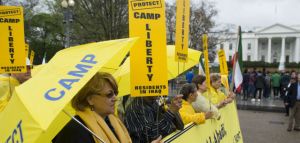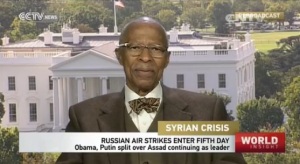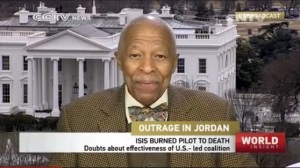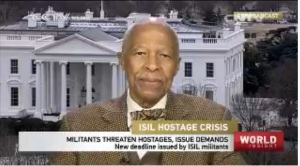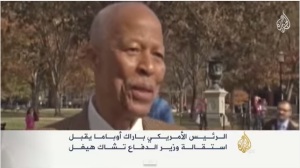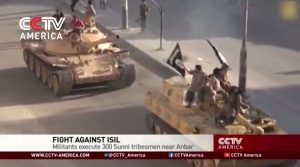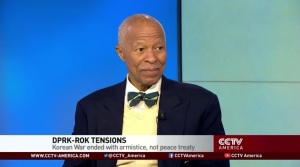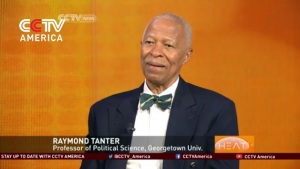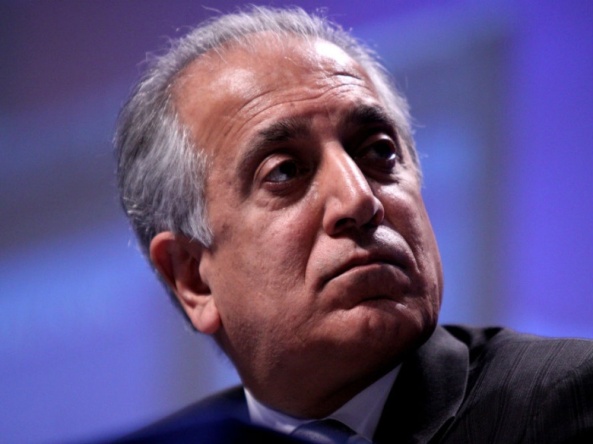
Dr. Zalmay Khalilzad, former U.S. ambassador to the United Nations, Iraq and Afghanistan, will speak at the Center for the National Interest in Washington, DC, on April 12, 2016. That talk is a part of the rollout of his new book, The Envoy: From Kabul to the White House, My Journey Through a Turbulent World. Khalilzad spoke at the Center for Strategic and International Studies (CSIS) on March 31 in an event moderated by CBS Anchor Bob Schieffer, and an event was held for Khalilzad at the National Endowment for Democracy (NED), with President Carl Gershman as moderator. These occasions are a testimony to the quality of the book, the respect Khalilzad commands from his colleagues, and the relevance of The Envoy for the future of American foreign policy in hot spots like Afghanistan and Iraq.
Khalilzad has had a remarkable career in public service—all the more so after having grown up in northwestern Afghanistan. In addition to three ambassadorial posts, he has also served in senior positions in the State Department and the Defense Department. Earlier, he taught at Columbia University after earning a Ph.D. from the University of Chicago. His new book combines autobiography with sophisticated insights into some of America’s greatest foreign policy challenges in recent decades.
Theory and The Envoy
Regarding erudite insights, the book makes a contribution to the academic and policy literature on bureaucratic politics; consider, for example, the piece by Graham T. Allison and Morton H. Halperin, “Bureaucratic Politics: A Paradigm and Some Policy Implications.”
In a transition from ambassador to Afghanistan to become envoy to Iraq, Khalilzad recounts that he had been tasked with convening conferences across Iraq to identify leaders who would be able to work with exile groups to form an interim government. “Sovereignty was to be transferred to this new administration as soon as possible. But the process had been suddenly abandoned when President Bush announced that Paul Bremer would be going to Baghdad instead, to head the Coalition Provisional Authority, which would serve as the U.S. occupation government in post-Saddam Iraq.”
A few hours after the announcement, Bush called Khalilzad, stating, “We all love you, Zal. We think the world of you.” Khalilzad politely replied how he appreciated the compliment but did not understand why the administration was shifting plans, from one to devolve power as quickly as possible to the Iraqis, to one that would amount to being an occupying force like the one that had ruled Japan after World War II.
According to the president, as told by Khalilzad, the problem was that if both Bremer and Khalilzad went to Baghdad, Bremer would be reporting through the Department of Defense to Donald Rumsfeld, and Khalilzad would be reporting through National Security Council Advisor Condoleezza Rice. Because Rumsfeld and Rice were not working well together, one could not have two senior officials in the field responding to principals in Washington who were at odds with each other. The president needed the Department of Defense to be in the lead, and that meant Bremer.
The bitter irony is that Rumsfeld describes serious problems in Bremer’s reporting among the White House, State and Defense during the time Khalilzad discussed his disappointment with the president’s decision. So despite the president’s wish to resolve a problem before it arose, his solution did not have the desired effect.
What is interesting is how Bush ripped a page from the playbook of academics. But just because they wrote in journals does not mean they were “only” scholars. Indeed, they also often served in high-level positions. This “inner-and-outer” aspect of American policymakers gives rise to a richness of theorizing. One of the oft-cited and frequently discredited principles in the bureaucratic literature is that “where you stand depends on where you sit.”
Brent Durbin states, “Perhaps the most-abiding concept from the bureaucratic politics model, and the shorthand many have used to define it, is that actors will pursue policies that benefit the organizations they represent rather than national or collective interests. This idea, that ‘where you stand depends on where you sit,’ is often called Miles’s law after the Truman-era bureaucrat who coined the phrase.” Bureaucratic politics often serves as a counterweight to realist theories about decisionmaking.
To continue reading please go to: http://bit.ly/23yXCDK

